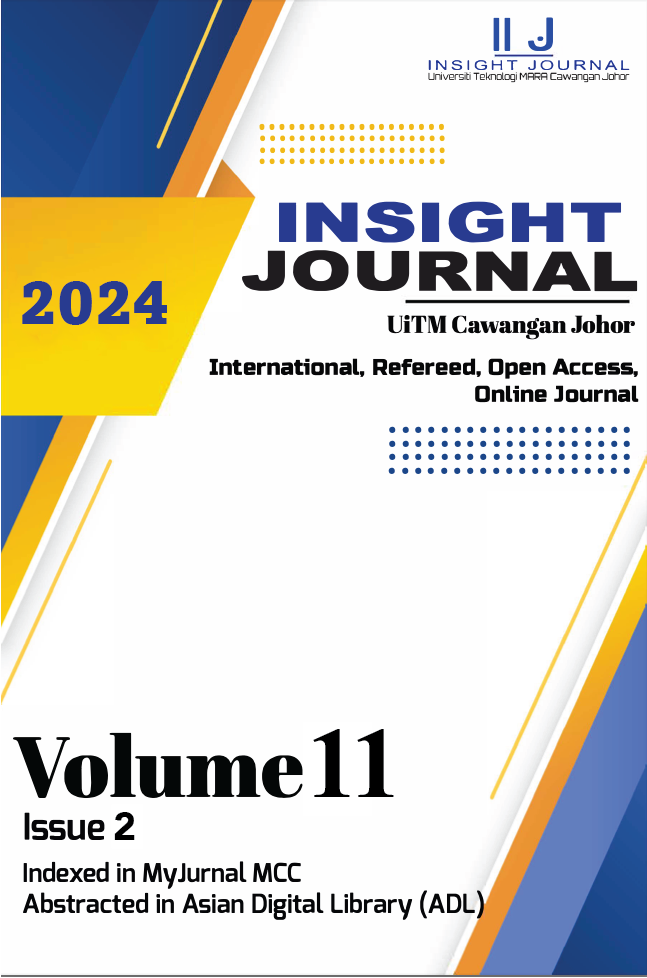ENHANCING WATER RESILIENCE
THE IMPACT OF WATER RISK AWARENESS ON RESERVE MARGIN RATIOS IN MALAYSIA
DOI:
https://doi.org/10.24191/ij.v11i2.2411Keywords:
Awareness, Margin Ratio, Reserve, Water RiskAbstract
This study investigates the relationship between water risk awareness and the reserve margin ratio within the context of Malaysia's water management practices. Utilizing a mixed-methods approach, the research combines quantitative analysis of secondary data from the Suruhanjaya Perkhidmatan Air Negara (SPAN) with qualitative insights from interviews with SPAN personnel. The study aims to provide a comprehensive understanding of the operational and regulatory challenges faced by water companies in Malaysia and the impact of these challenges on water supply and resilience. The findings reveal that SPAN monitors two main areas: services, encompassing the entire water service chain from intake to end-users, and facilities, including asset ownership, operations, and construction. SPAN conducts quarterly Water Regulatory Meetings to address technical aspects and capital expenditures, ensuring compliance and identifying water shortages that necessitate the construction of new plants. However, several states, such as Kelantan, Kedah, and Perlis, report critically low or zero reserve margin ratios, highlighting significant water supply vulnerabilities. The study further outlines crucial concerns pertaining to water utilisation practices and infrastructure. Leakages in pipes, frequently resulting from the deterioration of pipes that are more than 40 years old, have a substantial impact on water loss and inefficiency. The study emphasises the importance of making substantial investments in infrastructure and implementing more efficient regulatory approach. This is important to maintain an ideal reserve margin and ensure efficient service delivery. The insights gained from this study have crucial implications for policymakers, water service providers, and other stakeholders in the development of sustainable water management policies.
References
Downloads
Published
Issue
Section
License
Copyright (c) 2024 UiTM Press

This work is licensed under a Creative Commons Attribution 4.0 International License.







